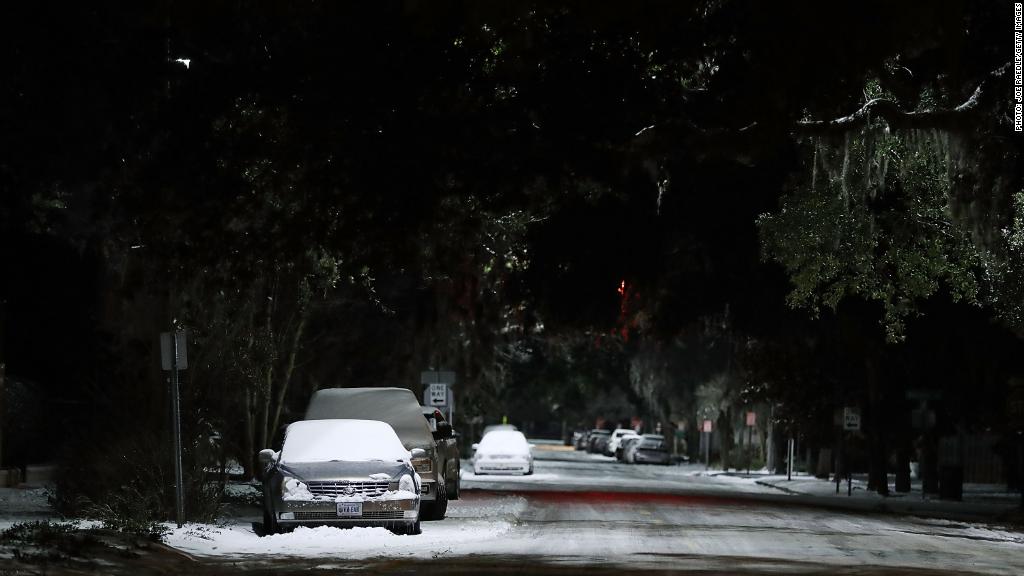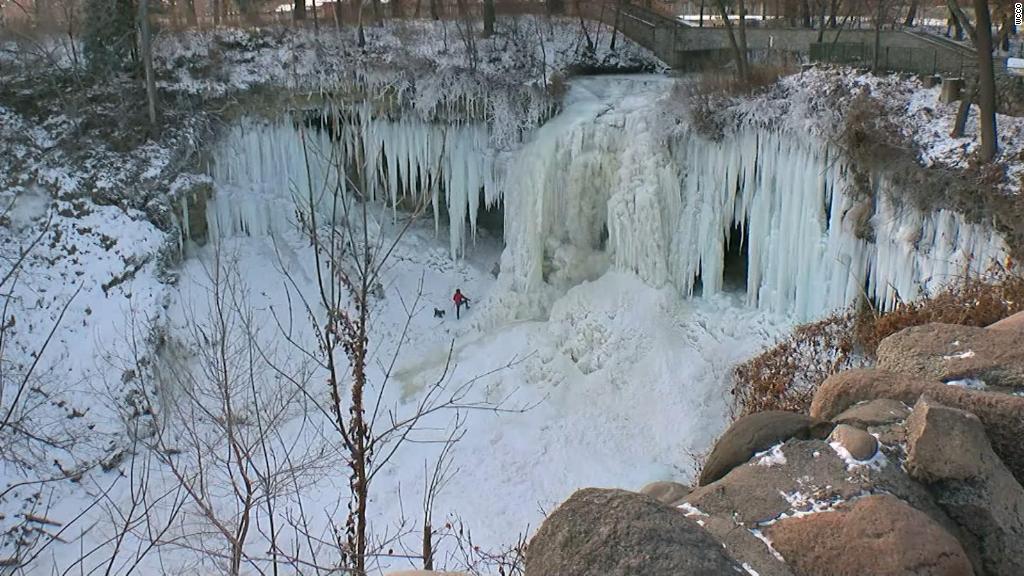
Thousands of flights across the United States have been scrapped or delayed as a winter storm sweeps across the East Coast.
More than 4,300 flights were wiped on Thursday, and more than 2,000 were delayed as of 7 p.m. ET, according to FlightAware.
East Coast travel hubs were hit the hardest.
New York's LaGuardia and JFK International airports officially closed on Thursday afternoon due to the storm, according to the FAA. Both airports had been open earlier despite significant flight cancellations. LaGuardia resumed operations around 7 p.m. ET, while JFK said it planned to reopen sometime overnight.
Islip's Long Island MacArthur Airport said all inbound and outbound flights were canceled Thursday, and the airport would remain shuttered until midnight for snow removal. A member of the airport's law enforcement team said the first inbound flight is expected Friday around 10 a.m. ET.
Newark Liberty said that more than 70% of flights there had been canceled. By Thursday, the airport said the weather was affecting "many flights" and that passengers should check with carriers about status.
American Airlines (AAL) suspended departures from Boston on Thursday because of strong winds and heavy snow. All told, the airline said it and its regional partners have canceled more than 1,2000 flights because of the storm. Delta said it was canceling 750 flights.
Latest updates: Massive winter storm set to slam Northeast
Further south, all flights in and out of Charleston International Airport in North Carolina were canceled "due to snow and ice cover." The airport said three airlines also canceled some or all of their flights scheduled for Friday as well.
American, Delta (DAL), Southwest (LUV) and United all warned passengers to expect long delays and cancellations at dozens of other airports across the country.
Thirteen states from South Carolina to Maine are under a winter storm warning and the governors of Georgia, North Carolina, Virginia, New Jersey and New York declared states of emergency. Forecasters say the Northeast states can expect hurricane-force winter wind gusts and blinding snow.
Related: Disaster costs jumped over 60% this year to $306 billion
New York's emergency declaration covers the entire downstate region, including New York City and Long Island. The major travel hub is expected to receive between 6 and 10 inches of snow, Cuomo said.
"The situation has continued to deteriorate," Governor Andrew Cuomo told reporters at a news conference Thursday.
While Cuomo said authorities don't expect to close any bridges right now, he called the situation "ugly" and "dangerous," and urged people to stay indoors. He also issued a travel advisory from 9 a.m. to 4 p.m.
Connecticut Governor Dan Malloy said on Twitter that hundreds of state and private plow trucks are working to clear the roads. The forecast there calls for at least 6 inches of snow.
The travel disruptions reached beyond flights and airports. Amtrak reduced service between New York and Boston, and also Springfield, Mass., and New Haven, Conn., and canceled trains between Washington, D.C., and Newport News and Norfolk, Virginia.
Greyhound buses running between Montreal, Boston, New York City, Albany, New York, Washington, D.C., Philadelphia, Atlantic City, New Jersey, and the Maine cities of Bangor and Portland, were also canceled. The bus station in Savannah, Georgia, was shut down.
Motorists are also urged to leave their cars at home.
"Driving conditions during the storm are expected to be hazardous and motorists are urged to stay off the roads until the storm passes," said Virginia Transportation Secretary Aubrey Layne.
The storm is also certain to hamper truck delivery routes throughout the region.
In New York and New Jersey alone, for example, trucks transport a combined 646,000 tons of goods per day, according to 2012 data from the American Transport Research Institute. More than 85% of residents in each of those states depend exclusively on trucks to move their goods.
Sean McNally, spokesman for the American Trucking Associations, says his group is urging its members to stay safe and cautious.
"There's no load, there's no delivery that's that important," he said. "The supply chain is resilient enough to deal with these weather-induced delays."
The association represents roughly 37,000 fleets and 50 state associations.

--CNNMoney's Jackie Wattles contributed to this report.
